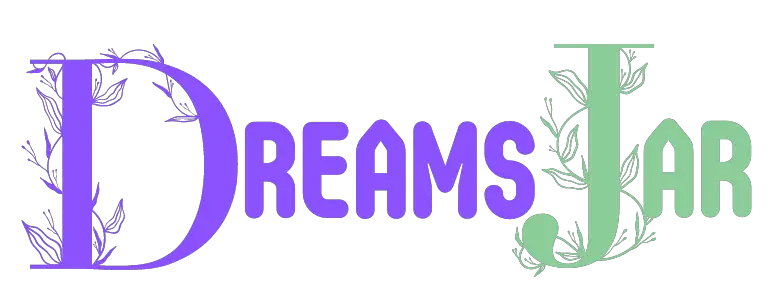What Is the Dream Meaning: Unveiling the Hidden Meanings
Dream meanings are a subjective interpretation of the symbolic representations in our dreams. Dreams are believed to provide insights into our subconscious mind, emotions, and experiences. They are often analyzed to uncover repressed feelings, understand ongoing issues, or predict future events.
Dreams are a natural phenomenon that occurs during sleep. The interpretation of these dreams, known as dream analysis, uses the symbols occurring in the dream to derive significant meanings.
These meanings are subjective and can vary depending on one’s cultural, social, or personal background. Dream experts believe that understanding dream meanings can help in self-awareness and personal growth.
15 Interpretations: Dream Meaning
| Dream Symbol | Possible Interpretation |
|---|---|
| Falling | Loss of control, insecurity, fear of failure |
| Flying | Freedom, ambition, overcoming obstacles |
| Teeth falling out | Anxiety, powerlessness, concerns about appearance |
| Being chased | Avoidance, facing problems, feeling threatened |
| Death | Change, transformation, end of a phase |
| Water | Emotion, spirituality, cleansing |
| Animals | Instincts, personal characteristics, emotions |
| Babies | New beginnings, innocence, creativity |
| Houses | Identity, self, aspects of personality |
| Exams/Tests | Self-evaluation, fear of failure, anxiety |
| Fire | Passion, destruction, anger |
| Snakes | Transformation, healing, fear, temptation |
| Cars | Control, direction in life, personal power |
| Money | Self-worth, success, values |
| Nudity | Vulnerability, fear of exposure, honesty |
Key Takeaway

Five Facts About: Dream Meaning
Understanding The Concept Of Dream Meaning
Dreams have long intrigued and perplexed humans throughout history.
The idea that dreams convey hidden meanings is a concept that has captivated individuals across cultures and generations.
Exploring The Significance Of Dreams In Human Life
- Dreams serve as a window to the subconscious mind, allowing us to tap into our deepest thoughts and emotions.
- They can act as a conduit for processing unresolved issues, fears, or desires that we may not be consciously aware of in our waking lives.
- Dreams can provide valuable insights, guidance, and even creative inspiration, helping us gain a new perspective on our waking reality.
- They play a crucial role in memory consolidation, as the brain organizes and stores information received throughout the day.
- Dreams can also reflect our current emotional state, mirroring our joys, anxieties, or stresses.
Historical Perspectives On Dream Interpretation
- Ancient civilizations, such as the egyptians and greeks, believed that dreams were divine messages from the gods or a portal to communicate with the spirit world.
- In the fourth century bce, aristotle proposed that dreams were indicators of one’s overall physical and mental well-being.
- Sigmund freud, the father of psychoanalysis, revolutionized the study of dreams by suggesting that they were symbolic representations of repressed desires and unresolved conflicts.
- Carl jung, a renowned swiss psychologist, expanded on freud’s theories and introduced the concept of the collective unconscious, where dreams tap into universal archetypes and symbols.
How Dreams Have Been Interpreted In Different Cultures
- Native american cultures often view dreams as spiritual encounters, with messages from ancestors or spirits guiding their waking lives.
- In chinese culture, dreams are believed to reveal hidden truths and can be used for divination or predicting the future.
- The aboriginal people of australia consider dreams as a way to connect with their ancestral past and gain spiritual guidance.
- African cultures place great importance on dreams, believing that they can provide insight into healing, reconciliation, and community well-being.
Dream interpretation varies greatly across cultures, influenced by individual beliefs, religious backgrounds, and societal norms.
While there may be common themes and symbols, it is crucial to respect and understand the cultural context when exploring dream meanings.
As we delve into the hidden meanings behind dreams, it is important to approach the topic with an open mind, recognizing that personal experiences and interpretations may differ greatly.
The world of dreams is intriguing, offering a glimpse into the mystery of our subconscious mind and inviting us to explore the depths of our psyche.
So let us embark on this journey, unraveling the enigmatic language of dreams.
Importance Of Unveiling The Hidden Meanings
Recognizing The Potential Of Dreams To Provide Insight
- Dreams have puzzled and fascinated humans since ancient times, with many cultures attaching great importance to them.
- Dreaming is a natural and innate process that occurs during our sleep, and it has the potential to offer us valuable insights into our lives.
- Our dreams often reflect our deepest desires, fears, and emotions, providing a unique window into our subconscious minds.
- By paying attention to our dreams and uncovering their hidden meanings, we can gain a deeper understanding of ourselves and the world around us.
How Understanding Dream Meanings Can Enhance Personal Growth
- Dreams can serve as a powerful tool for personal growth and self-improvement.
- Exploring the meanings behind our dreams can help us uncover patterns, symbols, and themes that are recurring in our lives.
- By understanding these symbols and themes, we can gain valuable insight into our thoughts, emotions, and experiences.
- This self-awareness can lead to personal growth and the ability to make positive changes in our lives.
- By interpreting our dreams, we can also identify unresolved issues or areas of our life that need attention and healing.
- The insights gained from understanding dream meanings can fuel personal development and guide us towards living a more fulfilling and authentic life.
The Role Of Dream Analysis In Psychology And Therapy
- Dream analysis has long been a significant aspect of psychology and therapy.
- Sigmund freud, the father of psychoanalysis, believed that dreams were a window into the unconscious mind and served as a way to express repressed desires and wishes.
- Dream analysis is utilized by therapists to help uncover underlying emotions, conflicts, and traumas that may be affecting a person’s well-being.
- Dreams can be a valuable tool in therapy as they provide a means for individuals to explore and process their internal struggles and experiences.
- By analyzing dreams, therapists can assist their clients in gaining insight and understanding, leading to personal transformation and healing.
Understanding the hidden meanings of dreams is crucial in various aspects of life.
From gaining self-awareness and promoting personal growth to assisting psychologists and therapists in their work, dreams offer profound insights that can be harnessed for personal development and well-being.
So, next time you wake up from a dream, take a moment to consider its potential meaning and discover the power it holds in unlocking the secrets of your subconscious mind.
Unraveling The Symbolism In Dreams
Dreams have fascinated and intrigued humans for centuries. While dreams are often a mysterious and elusive phenomenon, they are believed to hold hidden meanings and messages.
One of the key aspects of understanding dreams is deciphering the symbols that appear within them.
Symbols in dream language can offer valuable insights into our subconscious thoughts, feelings, and experiences.
The Use Of Symbols In Dream Language
- Symbols serve as a language that our subconscious mind uses to communicate with us during our dreams.
- Symbols have a universal meaning, rooted in the collective unconscious, but can also hold personal significance based on an individual’s unique experiences and cultural background.
- Dreams often employ symbols to convey complex emotions, unresolved conflicts, or important messages that are difficult to express through ordinary language.
- Symbols in dreams can take various forms, including objects, animals, people, and actions, each holding their own significance.
Common Dream Symbols And Their Interpretations
- Falling: Represents a loss of control, insecurity, or fear of failure.
- Flying: Symbolizes freedom, liberation, and the ability to rise above challenges.
- Water: Can signify emotions, the subconscious mind, or the unknown.
- Teeth falling out: Suggests insecurities, self-image concerns, or fear of aging.
- Snakes: Symbolize transformation, healing, or can represent a person or situation that feels threatening.
- Being chased: Indicates avoidance, fear, or the need to confront an issue or person.
- Death: Often represents a transition, change, or the end of a phase in life.
How To Interpret Symbols In The Context Of Personal Experiences
- Consider personal associations: Reflect on the emotions, memories, or experiences that specific symbols evoke for you personally.
- Examine the context: Analyze the events and situations surrounding the appearance of symbols in your dreams to gain a better understanding of their meaning.
- Explore symbolism in waking life: Symbols in dreams are often influenced by real-life experiences, so exploring the symbolic meaning of objects, events, or people in your waking life can provide valuable insights.
- Keep a dream journal: Recording your dreams and revisiting them later can help identify recurring symbols and patterns, enabling you to make connections and interpretations over time.
- Seek professional guidance: If you are struggling to interpret the symbols in your dreams, a therapist or dream analyst may provide valuable assistance and offer further insights into their meanings.
By unraveling the symbolism in our dreams, we gain access to a deeper understanding of ourselves and our subconscious mind.
Paying attention to these hidden messages can lead to personal growth, self-awareness, and a greater sense of meaning and purpose in our waking lives.
So, next time you find yourself immersed in the enigmatic world of dreams, remember to look beyond the surface and embrace the rich symbolism within.
Unconscious Desires And Emotions In Dreams
Freudian Theory On The Symbolism Of Dreams
Sigmund freud, the renowned psychoanalyst, developed a theory that dreams are the portal to our unconscious mind, where our true desires and emotions lie.
According to freud, dreams are not random, but rather full of hidden meanings and symbols.
Let’s delve deeper into freudian theory and understand the symbolism of dreams:
- Dreams as wish fulfillment: Freud believed that dreams are a manifestation of our unfulfilled desires. They allow us to experience things we may not be able to in reality. Dreams act as a release for our repressed wishes.
- Symbolic representation: According to freud, dreams use symbols to convey their deeper meanings. These symbols often represent hidden desires or unresolved conflicts from our past. Understanding these symbols is crucial in deciphering the true message behind our dreams.
- Manifest and latent content: Freud distinguished between the manifest content (what we remember from our dreams) and the latent content (the hidden meaning behind the dream). Through dream analysis, one can uncover the latent content and uncover the unconscious desires that motivated the dream.
- Psychosexual symbolism: Freud believed that dreams often contained symbolic representations of our sexual desires and repressed emotions. These symbols may take the form of objects, actions, or even people. By interpreting these symbols, we can gain insight into our innermost thoughts and feelings.
Unveiling Repressed Emotions Through Dream Analysis
Dream analysis is a powerful tool that allows us to access and interpret our hidden emotions.
By exploring the symbols and patterns in our dreams, we can unravel repressed feelings and gain a deeper understanding of ourselves.
Here are some key points to consider:
- Symbol analysis: Dreams often contain a range of symbols, each representing a different aspect of our psyche. Analyzing these symbols can help uncover hidden emotions and unresolved conflicts that may be impacting our daily lives.
- Emotional release: Dreams provide a safe space to express and process emotions that we may suppress while awake. Through dream analysis, we can identify and release repressed emotions, leading to a sense of emotional catharsis and personal growth.
- Unconscious associations: Dream analysis involves making connections between the symbols in our dreams and our unconscious associations. By delving into these associations, we can gain insight into the underlying emotions and experiences that influence our dreams.
- Empowerment and self-reflection: Through dream analysis, we can gain a greater sense of self-awareness and empowerment. By understanding the hidden meanings in our dreams, we can make conscious choices and take proactive steps towards personal and emotional well-being.
Exploring The Connection Between Dreams And Subconscious Desires
Our dreams offer a glimpse into the mysterious realm of our subconscious mind, where our deepest desires and fears reside.
Exploring the connection between dreams and subconscious desires can provide invaluable insights into our inner selves.
Let’s delve into this intriguing relationship:
- Symbolic expression: Dreams often present our subconscious desires in symbolic ways. These symbols reflect the emotions, needs, and wants that exist beneath the surface. Deciphering these symbols helps us understand the true nature of our subconscious desires.
- Unconscious processing: Our dreams act as a form of psychological processing, allowing us to unconsciously work through unresolved conflicts and emotions. By tapping into our dreams, we can access the hidden realms of our mind and gain a better understanding of our subconscious desires.
- Hidden motivations: Dreams can reveal the motivations behind our thoughts, feelings, and behaviors. By analyzing the themes and patterns in our dreams, we can uncover the subconscious desires that may be driving our actions in waking life.
- Self-discovery: Exploring the connection between dreams and subconscious desires can be a transformative journey of self-discovery. It enables us to gain insights into our true passions, aspirations, and deepest longings, helping us align our waking life with our authentic selves.
Dreams are captivating windows into our deepest selves, offering a world of symbolism and hidden meanings.
By understanding the freudian theory, unveiling repressed emotions through dream analysis, and exploring the connection between dreams and subconscious desires,
We can unlock the remarkable power of our dreams and embark on a journey of self-discovery and personal growth.
Tools And Techniques For Dream Interpretation
Dreams have long fascinated and perplexed humans. They are the portal to our subconscious mind, opening up a world of hidden meanings and symbolism.
To unlock the secrets of our dreams, it’s essential to employ the right tools and techniques for interpretation.
Here are some effective methods to explore the depths of your dreams:
Keeping A Dream Journal To Track Patterns And Symbols
- Record your dreams: As soon as you wake up, jot down every detail you remember from your dream. Don’t worry about organizing or analyzing at this stage; just let the words flow.
- Look for patterns: Regularly review your dream journal to identify recurring symbols, themes, or emotions. This can help identify patterns that offer valuable insights into your subconscious mind.
- Analyze symbolism: Pay attention to the symbols that appear in your dreams. Reflect on their personal significance and any cultural or universal meanings they hold. Consider using dream interpretation resources or books to enhance your understanding.
Lucid Dreaming And Its Influence On Dream Analysis
- Achieving lucid dreams: Lucid dreaming occurs when you become aware that you’re dreaming while still in the dream state. Practices such as reality testing, meditation, and visualizations can help induce lucidity in dreams.
- Exploring dream landscapes: Once you enter a lucid dream state, take charge and explore the dream landscape. Interact with dream characters, ask questions, and seek answers from your dream self or the dream environment itself.
- Gaining insights: Lucid dreaming provides a unique opportunity to actively engage with your dreams and gain insights into your thoughts, emotions, and desires. It allows you to analyze your dreams in real-time and experience them in a more conscious and intentional manner.
Seeking Professional Help For In-Depth Dream Exploration
- Consult with a dream analyst or therapist: If you’re struggling to decipher the meaning of your dreams or would like a deeper exploration, consider seeking guidance from a professional dream analyst or therapist.
- Group dream analysis: Participating in dream analysis groups or workshops can offer a collaborative and supportive environment for understanding dreams. Sharing and discussing dreams with others can bring forth different perspectives and interpretations.
- Utilizing online resources: The internet offers numerous dream interpretation websites, forums, and online communities where you can connect with like-minded individuals and gain further insights into your dreams.
Remember, dream interpretation is a deeply personal process, and there is no one-size-fits-all approach.
Use these tools and techniques to guide your exploration, but ultimately trust your intuition and individual experiences.
Delve into the rich landscape of your dreams, and you may uncover profound insights about yourself and your subconscious mind.
FAQ About Dream Meaning
What is the meaning of dreams?
Dreams are symbolic representations of experiences, thoughts, and emotions that a person has. Through dreams, the subconscious reveals various secrets, thoughts, and feelings that a person may not consciously be aware of.
What can dreams tell us about ourselves?
Dreams can help us gain insights about ourselves by providing a window into our thoughts, feelings, and desires.
They can provide us with a better understanding of our psychological state, as well as giving us insights into our past and future.
Is it possible to interpret our own dreams?
Yes, it is possible to interpret your own dreams with the help of books, online resources, and even dream journals.
It is also possible to seek professional help to gain greater insight and understanding of your dreams.
Is it possible to control our dreams?
Yes, it is possible to control your dreams by engaging in dream practices such as lucid dreaming.
Lucid dreaming is a method of gaining conscious awareness during dreaming, and allows you to take control of the dream, from choosing different dream settings to manipulating the dream sequence and characters.
Bonus Topic For- Dream Meaning
What Is Dream Interpretation?
Dream interpretation is the process of finding meaning and significance behind the images, emotions, and events experienced in our dreams.
It is a way to explore our subconscious thoughts and desires, helping us understand our emotions, fears, hopes, and aspirations.
By analyzing the symbols and scenarios in our dreams, we can gain insights into our inner world and work on personal growth.
- Uncover subconscious thoughts and desires
- Explore emotions, fears, hopes, and aspirations
- Analyze symbols and scenarios in dreams
What Do Dreams Represent?
Dreams represent a collection of thoughts, feelings, and experiences that occur during sleep. They can serve various purposes, such as processing emotions, solving problems, or even providing creative inspiration.
Dreams can be mysterious and symbolic, leading to many interpretations and meanings.
- Processing emotions
- Solving problems
- Providing creative inspiration
- Symbolic representations
Dream Meaning, Symbolism, and Analysis Techniques
Dream meaning, symbolism, and analysis techniques can help individuals interpret and understand their subconscious thoughts and emotions.
By analyzing the symbols and elements within a dream, insights can be gained into personal issues, unresolved conflicts, or potential opportunities for growth.
This can ultimately lead to an increased level of self-awareness and personal development.
- Identify key symbols and elements within the dream
- Analyze the context and emotions associated with these symbols
- Look for recurring patterns or themes
- Consult dream dictionaries or reference material for additional insights
- Reflect on personal life experiences or challenges that may be connected to the dream
What is the true meaning of a dream?
The true meaning of a dream can vary depending on the individual and the specific dream. Dreams are often seen as a way for the subconscious mind to process emotions and experiences from daily life.
They can also be a reflection of desires, fears or anxieties. Psychologists believe that dreams have a symbolic meaning and can represent a deeper psychological state.
Exploring the meaning of dreams can provide insight into one’s innermost thoughts and feelings and can aid in personal growth and self-awareness.
- Dreams can be a way for the subconscious mind to process emotions and experiences.
- They may reflect desires, fears, or anxieties.
- Psychologists believe they have symbolic meanings.
- Exploring dream meanings provides insight into personal growth and self-awareness.
What is called dream?
Dreams are a series of thoughts, emotions, and sensations that occur in a person’s mind during sleep.
They can be vivid or vague, pleasant or terrifying, and may be influenced by external factors like a person’s experiences and emotions.
Dreams are believed to be a way for the brain to process information and emotions from the day, as well as a way to work through unresolved issues.
While there are many theories about what dreams mean, there is still much that is unknown about this phenomenon.
What is the meaning of dreams in Islam?
In Islam, dreams are considered a means of communication from Allah. They can be an indication of future events, a reflection of one’s subconscious, or a message from Allah.
Dreams are interpreted based on their content and context, as well as the individual’s personal experiences and circumstances.
Islamic scholars have outlined guidelines for interpreting dreams, and it is important to seek the guidance of knowledgeable individuals when interpreting dreams.
Some common interpretations of dreams in Islam include:
- Seeing oneself reciting the Quran: a sign of success in this life and the hereafter
- Seeing a deceased loved one: a sign of blessings and a reminder to pray for the deceased
- Being chased or attacked: a sign of impending danger or harm
- Seeing oneself flying: a sign of spiritual elevation and success in life.
Do dreams have a message?
Do dreams have a message? There is no definitive answer to this question, but many people believe that dreams are a way for our subconscious minds to communicate with us.
Some common theories about the meaning of dreams include:
- Dreams are symbolic representations of our deepest desires or fears.
- Dreams can help us process emotions or experiences that we may not be aware of in our waking lives.
- Dreams may offer insight or guidance on important decisions or challenges we are facing.
Ultimately, the meaning of dreams is highly subjective and can vary depending on the individual and their personal experiences.
While some experts believe that dream interpretation can be useful for self-discovery, it is important to approach these interpretations with caution and skepticism.
Why do dreams feel real?
Dreams can feel incredibly real, even though they are not happening in reality. There could be several reasons behind this phenomenon.
One of the most common theories is that our brain activity during dreaming is similar to when we are awake.
Hence, our brain registers the dream as a real experience. Additionally, emotions we experience in our dreams, such as fear or happiness, can feel incredibly real.
Finally, recalling dreams after we wake up can blur the lines between what was real and what was not.
Overall, while the science behind why dreams feel real is not fully understood, it is clear that our brain plays a significant role in this experience.
- Brain activity during dreaming is similar to when we are awake.
- Emotions we experience in our dreams can feel incredibly real.
- Recalling dreams after we wake up can blur the lines between what was real and what was not.
Conclusion
In conclusion, dream interpretation is the process of assigning meaning to dreams. Dreams represent the unconscious mind attempting to communicate with the conscious mind and can provide insights into the dreamer’s thoughts, emotions, and experiences.
Dream meaning symbolism and analysis techniques, such as keeping a dream journal and identifying recurring themes, can aid in uncovering the deeper meanings behind dreams.
While there is no one definitive interpretation for any given dream, exploring the symbolism and analyzing the context of the dream can provide valuable insight and guidance for the dreamer.
TL;DR:
- Dream interpretation assigns meaning to dreams
- Dreams represent the unconscious mind communicating with the conscious mind
- Dream meaning symbolism and analysis techniques can uncover deeper meanings
- Keep a dream journal and identify recurring themes for analysis
- Exploring symbolism and context can provide valuable insight and guidance for the dreamer
Action List:
- Keep a dream journal
- Identify recurring themes in dreams
- Explore the symbolism and context of dreams for deeper meanings
- Use dream interpretation as a tool for self-reflection and personal growth.






